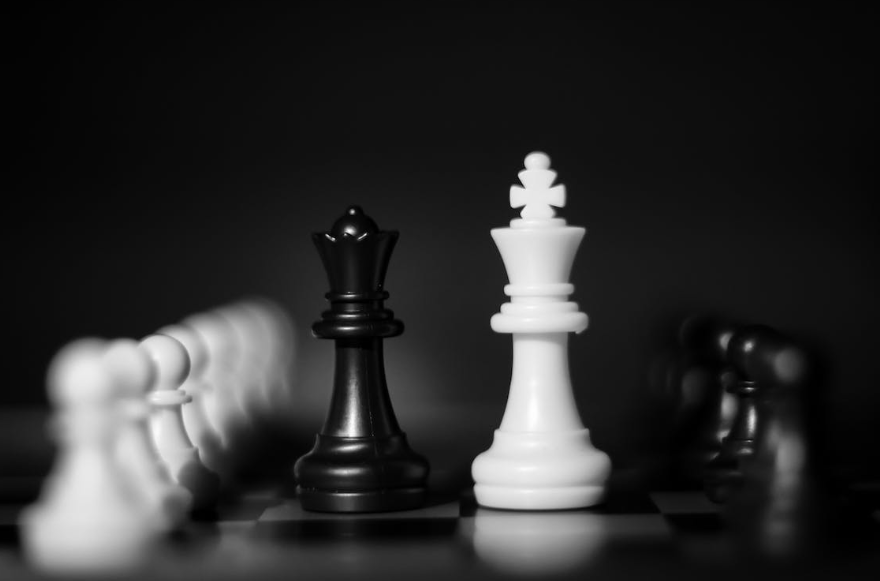In my last column, I said that I cared little for Donald Trump as a person. I really meant this.
My criticism was the loss of the universal concepts (or absolutes, as they’re sometimes called) like Justice and Democracy, values that Trump’s critics themselves said they wanted to preserve. But amazingly enough, some of the same people who now claim to want to preserve absolutes, are the very same ones (or are from the same groups) who for decades have sought to tear them down.
I remember watching an old episode of “Firing Line” as a younger man. Host Bill Buckley quoted John Stuart Mill, the father of Utilitarianism, and a favorite of progressives: “If all of mankind minus one, were of one opinion, and only one person were of the contrary opinion, mankind would be no more justified in silencing that one person, than he, if he had the power, would be justified in silencing mankind.” Although I agreed with Mill’s proposition of not silencing those in the minority, the philosophical implications where absolute truth was concerned seemed problematic. He seemed to be assuming that truth was a popular construct, something determined by the majority, rather than existing in an objective sense, which is what I had always believed.
A closer look confirmed this. “There is no such thing as absolute certainty,” Mill said, “but there is assurance sufficient for the purposes of human life.”
Other more famous philosophers also believed this way, including the nihilist Friedrich Nietzsche. “There are no eternal facts,” said Nietzsche, “as there are no absolute truths.” In short, I found that much of Western society had succumbed to Humean skepticism, leaving the notion of absolutes for various shades of subjectivity. This ideology remains today.
But it doesn’t take a genius of the Socratic sort to realize that if there are no such things as absolutes — as Nietzsche’s comment says above — then Nietzsche’s comment itself, to the extent that it is meant to be taken “absolutely,” is nonsense. The same can be said of any statement that denies absolutes. They are, in the end, self-defeating, because they’re denying even themselves. They do this by violating the law of non-contradiction, which says that something can’t be the same and its opposite at the same time. For instance, a car can’t be blue at the same time it’s green; a parakeet can’t be a sperm whale; a chicken egg can’t be a key to a new Rolls Royce; and, finally, a truth statement can’t be both true and false simultaneously.
This refusal to abide by sound logic has not served our culture well. In fact, it’s left us bankrupt where the category of moral reasoning is concerned. Once upon a time, philosophers toyed with the veracity of truth; now, we reach for scalpels to experiment with what it means to be human. At this rate, it’s easy to imagine a future skeptic beheading himself simply to see if René Descartes’ principle, “cogito, ergo sum,” is valid or not.
I don’t blame modern-day commentators for worrying about Justice and Democracy. But some of us have been worried about them, just as we’ve been concerned about all the absolutes, for quite some time. “Never be afraid to raise your voice for honesty and truth,” author William Faulkner said. But how to defend that which we seem determined to destroy?
Until we stop cherry-picking which absolutes we want to defend, as well as which situations we want them to apply to, we will truly be “tossed to and fro by the waves … by craftiness in deceitful schemes,” will be, as Francis Schaeffer said, standing with our “feet firmly planted in mid-air.”
It doesn’t have to be this way. We can turn the huge, swaying, wayward ship that is Western civilization around.
First, we must recognize that, because absolutes are, well, absolute, we as a culture or government don’t control them. They exist separately from us. They were put there by God and are part of His nature.
Next, difficult as it is at first, we must persevere to follow these truths, because even a bicycle can seem wobbly to a cyclist who’s been on his feet long enough. We will have the consolation of Aristotle, who said, “We are what we repeatedly do. Excellence, then, is not an act, but a habit.”
Finally, although difficult, following these truths will give us the same peace that Winston Churchill experienced the night after being elected Prime Minister. At the very least, we can sleep the sleep of the righteous.
Along with his father, Allen Keller runs a lumber business in Stevenson, Alabama. He has a Ph.D. in Creative Writing from Florida State University and an MBA from University of Virginia. He can be reached for comment at allen@kellerlumber.net.
Don't miss out! Subscribe to our newsletter and get our top stories every weekday morning.










